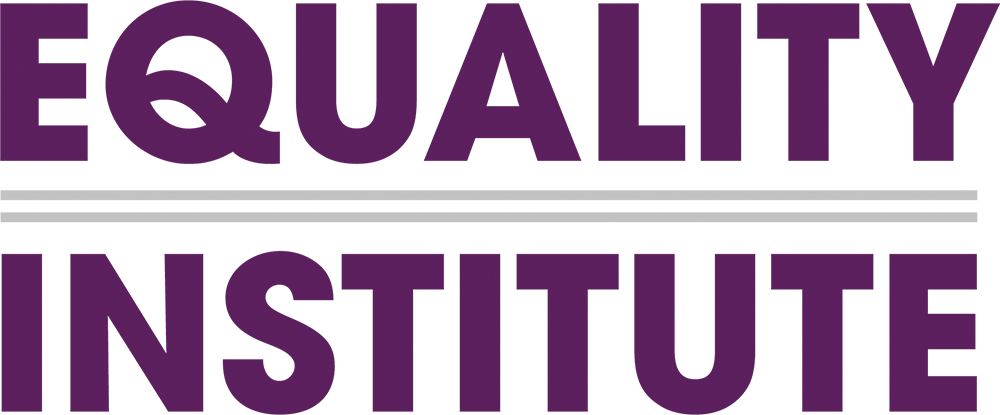New Survey Reveals How Wedding Businesses Can More Actively Support LGBTQ Couples.
CHICAGO, IL -- Community Marketing & Insights (CMI) and Equality Institute, released today the results of LGBTQ Weddings in 2018: a Survey of Same-sex and Queer Identified Couples. 808 community members who married in the past three years or are currently engaged were recruited from CMI’s proprietary research panel and the client and network databases of Equality Institute.
“LGBTQ couples, particularly gay men, are increasingly choosing to be non-traditional in their wedding plans. We’ve found that 43% of these couples are choosing to include elements of LGBTQ culture in their weddings, far more than religious or culture traditions (25%). I believe this speaks to the lack of gender roles in these relationships and the creative ways these couples express their authentic selves,” says Bernadette Smith, CEO of Equality Institute.
Adds David Paisley, Senior Research Director at Community Marketing and Insights, “The data also shows us that 20% of LGBTQ couples faced discrimination when wedding planning – and many more were afraid of this happening. To minimize that fear, 83% of these couples want to see photos of same-sex couples on wedding professionals’ websites.”
Other key findings include:
Fear about laws
· Over 90% of LGBTQ couples expressed at least some concern about religious freedom laws and concern that there could be a successful legal challenges reversing the right of same-sex couples to marry in the United States. 70% said they were very concerned.
· Just over half (53%) of LGBTQ couples are confident that marriage equality will remain in all 50 states five years from now.
· The other half mostly feel that we will return to that place where same-sex couples can be married in some states and not others.
LGBTQ couples are still facing discrimination in wedding planning
· Of the 20% of participants who reported some type of discrimination or negative LGBTQ-specific experience during their wedding planning process, female-same sex couples, non-binary couples, Millennials and those more recently married were most likely to make reports in the research. Reports were high in both liberal and conservative states.
· There is strong fear (61%) among transgender and non-binary identified couples regarding rejections from wedding vendors.
· Fear of discrimination also exists among a high percentage of same-sex couples (44%).
Wedding vendor selection
· The most important qualities that LGBTQ couples are looking for in a wedding vendor are inclusiveness (89%), responsiveness (87%), experience (87%), fair price (82%), and some experience supporting LGBTQ weddings (73%).
· It is important for same-sex couples to see at least some LGBTQ couples on a wedding vendor’s website (83%). LGBTQ couples also like to see open acknowledgement that the company serves same-sex couples (79%).
Getting married closer to home
· 18% of same-sex couples report getting married in other states or countries, making destination weddings important within the wedding industry.
· 2% of those report international destination weddings
Smaller weddings means more flexibility
Most LGBTQ couples that had a ceremony with invited guests planned celebrations in the 50 to 150 guest range. Very few had celebrations over 150. This means that LGBTQ couples have a lot more options for where they can hold their ceremonies, and opens doors for many different types of venues to promote weddings to LGBTQ couples.
Rings
Over 90% of LGBTQ couples continue the tradition of wedding rings. The survey found some weakness on the concept of engagement rings for male same-sex couples.
LGBTQ couples establishing their own traditions
With the exception of creating their own vows and photos, LGBTQ couples are much less likely to use “traditional” elements of a wedding ceremony. Male same-sex couples are far more likely to reject typical wedding traditions.
Lack of connection with religious institutions
On multiple questions throughout the survey, we see LGBTQ couples disconnected with religious institutions in the marriage process. Religious institutions need to do a better job outreaching to LGBTQ couples to let them know that they are welcome in their religious spaces and communities.
For more information, view the report here.
About Community Marketing & Insights
The Community Marketing & Insights team has been conducting LGBT consumer research for 25 years. Our practice includes online surveys, IDIs, MROCs, focus groups (on-site and virtual), and advisory boards in North America, Europe, Latin America, Australia and Asia. Industry leaders around the world depend on CMI’s research and analysis as a basis for feasibility evaluations, positioning, economic impact, ad creative and brand testing, informed forecasting, measurable marketing planning and assessment of return on investment.
About Equality Institute
Since 2009, Equality Institute has provided thoughtful, interactive training and consulting solutions to enhance sales, marketing, communication, and customer service to LGBTQ and other diverse colleagues, guests and customers. Our work also addresses unconscious bias, how to be an advocate at work, and is designed to inspire meaningful dialogue and improve organizational culture.
